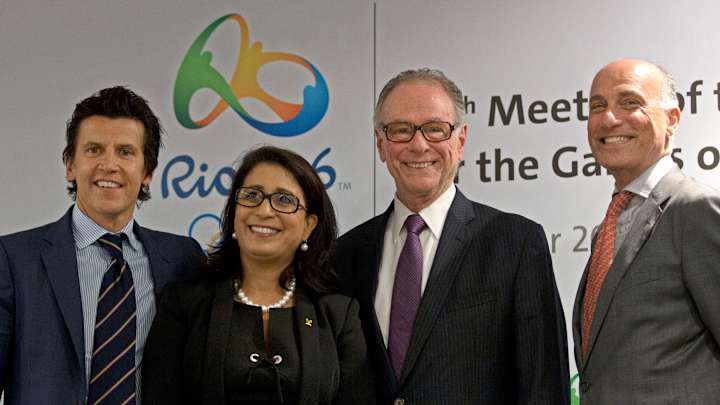Rio CEO: Security is biggest concern for Olympics

WASHINGTON (AP) The chief organizer of the Rio de Janeiro Olympics says security is his top concern, well ahead of the Zika virus.
Sidney Levy, CEO of the Rio Organizing Committee, said Tuesday that keeping athletes and visitors safe from terrorism and other crime is his No. 1 top priority. He called the biggest fear ''lone wolf'' attackers.
''Differently from Zika, security's at the top of my list - the very top of my list,'' Levy said at a Council of the Americas event. ''We should never forget that these days we live in a society that's very in danger.''
The plan is to have 85,000 security personnel on the streets. Levy said the 2013 visit of Pope Francis and the 2014 World Cup were tests for Brazil.
Francisco Dornelles, Rio's acting governor, warned on Monday that budget shortfalls could compromise security and transit at the games. Levy said intelligence officials from 100 different countries are in Brazil monitoring potential threats.
Zika, a virus linked to birth defects, has drawn widespread international concern. Levy stressed he does not worry about the virus and said none of the people working for him has contracted Zika. He pointed to expected cooler temperatures during the Olympics in his attempt to assuage fears.
''If I have to write on a piece of paper my top 10 worries today, Zika wouldn't be there,'' he said. ''I'm not saying it's not a public health issue. It is a public health issue. But we are going into the winter months in Rio and if you see every statistic of last year's mosquitos' proliferation in the summer and in the winter, it goes very high up in February and reaches the peak, which is the height of the summer. It starts going down, down, down. Right now it's almost zero.''
Levy said Rio organizers did not expect this level of concern over Zika, and he acknowledged that more people around the world are worried about it than Brazilians are. Several high-profile athletes cited it as their reason for withdrawing from the Olympics.
''We thought that there were too many people here in the States talking about Zika and this is too much. This is too much. Too many negative comments,'' Levy said. ''I think it was good for them to hear other voices.''
Levy was less optimistic about water pollution, saying Rio ''failed'' on its promise to clean 80 percent of it by the Olympics, which are set for Aug. 5-21. He said four of the five sites on the Guanabara Bay are tested daily for bacteria and will not pose any problems and left open the possibility of moving the other.
''The fifth area is closer to the shore and we're testing that and depending on the rain and the wind sometimes good, sometimes not so good,'' Levy said. ''If closer to the games we see that this is not good enough, we're going to change the location to further down the sea. We're very committed to not put at risk any athlete during the competition.''
The Associated Press has reported that Guanabara Bay has shown astronomically high level of viruses for which the state is not testing.
Another issue is the political turmoil in the country. Levy is unsure about the upcoming vote to impeach President Dilma Rousseff, which likely will take place in August.
''We do pray for the impeachment vote to happen before the games,'' Levy said. ''If that prayer is not answered, we hope that (will) happen after the games. We asked the president personally about that, but he can't control his congress and senate. We're going to have to manage whatever happens. It would be ideal of that to happen before the Olympics.''
Levy said the subway is almost ready and that the light rail is having its soft opening. Because those modes of transportation are new and Brazil has never hosted an event of this magnitude.
''Security is, of course, part of the core of the agenda,'' Levy said. ''But I would say today the main issue for me is the combination of all that: How to make all that work simultaneously on the very first day. .... First day everybody's watching. It's going to have to work. That's what worries me.''
